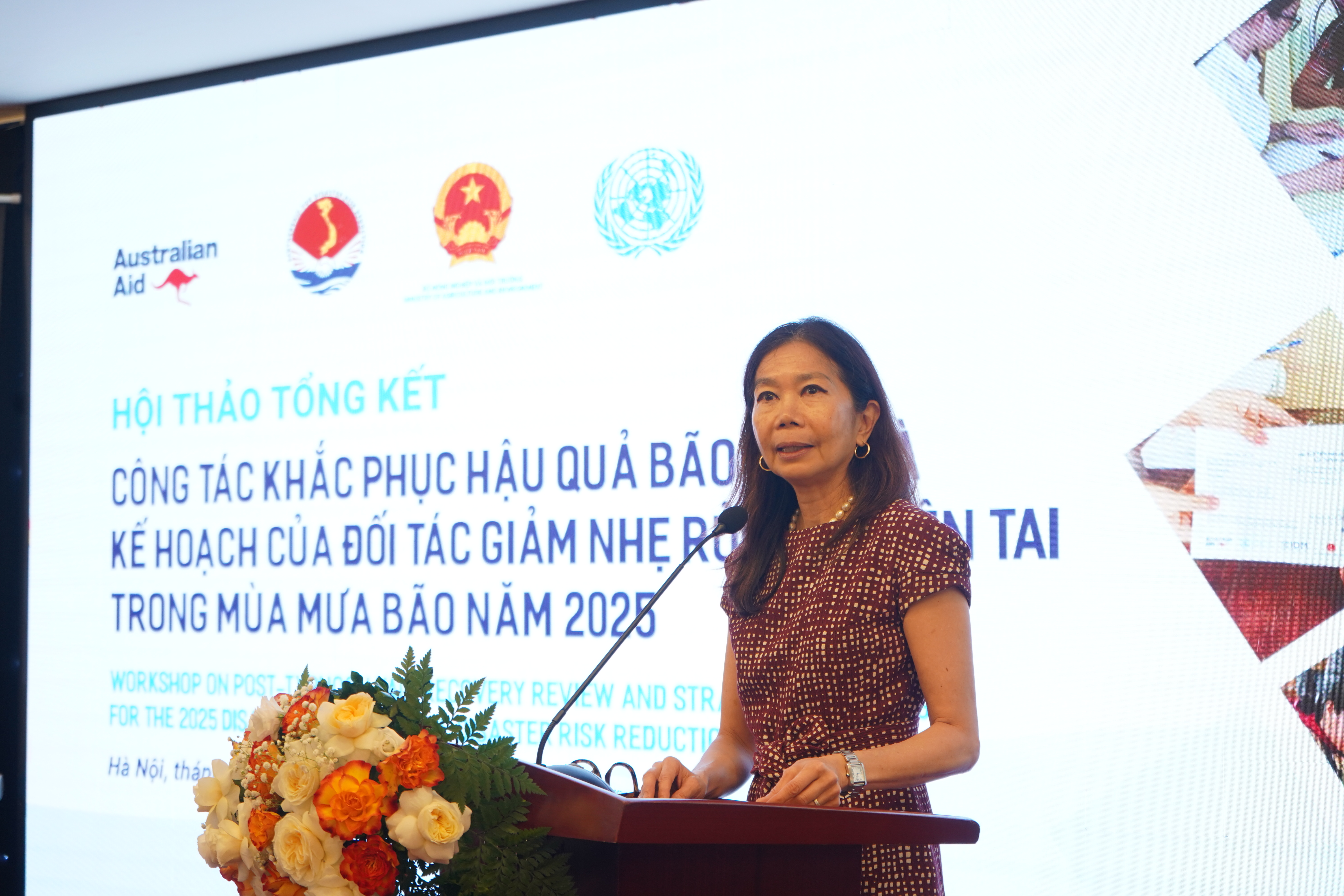In the context of the ongoing 2025 rainy and storm season, this workshop plays an especially important role in reviewing post-disaster recovery efforts, identifying remaining gaps in disaster response, and proposing more practical and effective solutions moving forward.
The workshop focuses on evaluating the effectiveness of post-disaster recovery activities, including the implementation of cash assistance, livelihood restoration, and infrastructure reconstruction. It also discusses the review and refinement of Decree No. 50 on the receipt and use of international aid in disaster contexts, to ensure that emergency relief is delivered in a timely, transparent, and targeted manner. In addition, the workshop serves as a platform for sharing lessons learned from cash assistance models implemented by international partners in recent years.

Representatives from key sectors—housing, agriculture, health, and water, sanitation and hygiene—shared their local recovery outcomes and highlighted issues to consider for the upcoming disaster season. Notably, the session on cash assistance generated practical recommendations from provinces, international organizations, and technical working groups to help refine and expand implementation going forward.

In his closing statement, the organizers acknowledged the active participation and collaborative spirit of all delegates, especially the close coordination among government agencies, development partners, and local authorities in the post-typhoon recovery process. The discussions held during the workshop will serve as a vital foundation for the Partnership’s planning for the 2025 disaster season—aiming not only to reduce future losses but also to enhance the resilience and recovery capacity of communities in the face of increasingly complex risks driven by climate change.